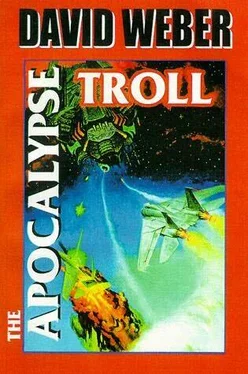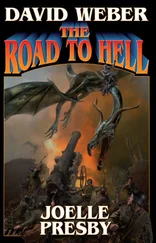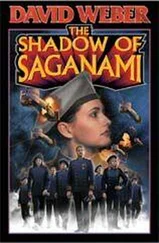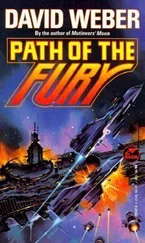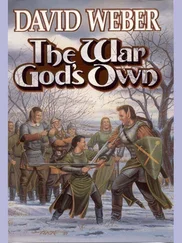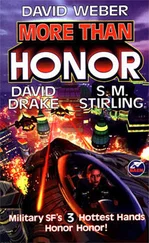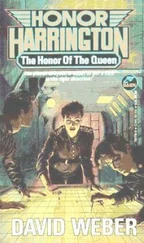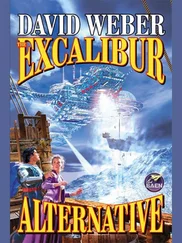David Weber - The Apocalypse Troll
Здесь есть возможность читать онлайн «David Weber - The Apocalypse Troll» весь текст электронной книги совершенно бесплатно (целиком полную версию без сокращений). В некоторых случаях можно слушать аудио, скачать через торрент в формате fb2 и присутствует краткое содержание. ISBN: , Жанр: Фантастика и фэнтези, на английском языке. Описание произведения, (предисловие) а так же отзывы посетителей доступны на портале библиотеки ЛибКат.
- Название:The Apocalypse Troll
- Автор:
- Жанр:
- Год:неизвестен
- ISBN:0671-57782-4
- Рейтинг книги:5 / 5. Голосов: 1
-
Избранное:Добавить в избранное
- Отзывы:
-
Ваша оценка:
- 100
- 1
- 2
- 3
- 4
- 5
The Apocalypse Troll: краткое содержание, описание и аннотация
Предлагаем к чтению аннотацию, описание, краткое содержание или предисловие (зависит от того, что написал сам автор книги «The Apocalypse Troll»). Если вы не нашли необходимую информацию о книге — напишите в комментариях, мы постараемся отыскать её.
The Apocalypse Troll — читать онлайн бесплатно полную книгу (весь текст) целиком
Ниже представлен текст книги, разбитый по страницам. Система сохранения места последней прочитанной страницы, позволяет с удобством читать онлайн бесплатно книгу «The Apocalypse Troll», без необходимости каждый раз заново искать на чём Вы остановились. Поставьте закладку, и сможете в любой момент перейти на страницу, на которой закончили чтение.
Интервал:
Закладка:
"Please, Ludmilla. Or Milla," Ludmilla interrupted.
"All right, Ludmilla," Hastings agreed. "But I've got two burning questions for you."
"Only two?" Ludmilla asked with a crooked smile.
"Two immediate ones," Hastings acknowledged with a shadow of an answering smile. "First, and most pressingly, there's the matter of this symbiote of yours. You say it's transmitted by direct blood transfer?"
"Yes."
"Then I think we have a problem," Hastings said softly. "Possibly a very serious one." Ludmilla raised an eyebrow, inviting her to continue. "Mosquitoes," Hastings said softly, and felt Morris stiffen beside her.
"Don't worry," Ludmilla said quickly. "Believe me, the Normals of my own time worried about the same thing, but we never found a single instance of transmission by any insect or vermin vector."
"Why not?" Hastings asked sharply.
"Two reasons," Ludmilla replied imperturbably. "First, our symbiotes don't seem to approve of insect bites; they exude a sort of natural insect repellent. But the second reason is even more effective. It takes the average human a little less than twelve hours to go into crisis if she's infected with the symbiote, but it acts a lot faster on smaller life forms and none of them survive. Any bug that bites me will be dead before it gets its proboscis out of my bloodstream. It'll never live long enough to transmit it to anyone else."
"Oh." Hastings mulled that over for a moment, then nodded slowly. "But what about insects on your home planet?" she asked curiously. "If they're immune because of their different amino acids ... ?"
"Commander Hastings," Ludmilla said gently, "one of Midgard's main tourist attractions is that the local insects don't like the taste of humans."
"That would be an attraction," Hastings agreed with a smile, and Ludmilla felt her spirits rise. That smile carried acceptance as well as amusement. For a moment, she'd been afraid Hastings was going to turn paranoid on her. She'd seen too many people of her own time do exactly the same, and with far less reason.
"But you said you had a second question?" she prompted after a minute.
"Oh, yes! I don't pretend to be an expert, but it occurs to me that this whole thing represents a causal nightmare."
"I couldn't agree more," Ludmilla said sincerely.
"Well, if we accept causality at all, then it sounds to me like we're faced with the disagreement between the Copenhagen school and the Many-Worlds interpretation," Hastings said. "The whole question of what happens when the superposition collapses and-"
"Jayne," Morris said sternly, "I've warned you about talking gibberish."
"Oh, hush, Mordecai!" his disrespectful junior shot back, but she paused. "All right, in simple terms the problem is how Colonel Leonovna-Ludmilla-and this Troll creature can change their own past. On the face of it, the very notion negates the entire concept of causality."
"The old 'can I kill my grandfather' thing?" Morris mused.
"More or less. The point is, what's happening represents a significant alteration to history. Ludmilla, did your records contain any mention of what happened to Task Force Twenty-Three?"
"No. And my hobby interest was military history. If there'd been any record of an authenticated attack on any Terran military force by UFOs, I'd've known about it, believe me."
"So we already have a gross shift in your history," Hastings pointed out. "Presumably, the effort we'll have to mobilize to do anything effective about this Troll will have an even greater effect. If nothing else, we know these Kanga creatures exist." She smiled unpleasantly. "Knowing that, I think we can confidently assume that their reception will be even more energetic than it 'was' in your own past. But the end result will be that your universe will never come into existence at all!"
"I know," Ludmilla said softly.
"But if it doesn't, then you won't come back, and if you don't come back, then it will," Morris said slowly, rubbing his forehead as he tried to understand. "What do we have here-some kind of loop?"
"That's where the Many-Worlds Theory comes in," Hastings said. "But even if Everett was right-" She shook her head. "I don't even know where to start looking for questions, much less what the answers might be!"
"Neither does anyone where I come from," Ludmilla said wryly. "Look, the whole theory behind a Takeshita Translation is just that: theory. No one's ever tried one-or reported back afterward, anyway-and the argument over what ought to happen during one has gone on for a century and a half.
"Jayne, you mentioned the Copenhagen School and the Many-Worlds Theory. We don't use that terminology anymore, but I know what you mean, and the fundamental problem remains, because there's still no way to test either theory." Aston and Morris looked utterly confused, and she made a face.
"Bear with me a minute, you two," she said, "and I'll do my ignorant best to explain, all right?" They nodded, and she went on.
"In its simplest terms, what Jayne is talking about is one of the major problems involved in understanding quantum mechanics. There's been a lot of progress since the twenty-first century, but I'm just a fighter jock." She used Aston's terminology with a wry grin.
"Essentially, there's been a dispute over the basic nature of what we fondly call 'reality' almost since Einstein. According to the math, any possible interaction-or, rather, the result of any interaction-is a superposition of functions, each of which represents one possible outcome of the interaction. With me so far?"
"Are you saying that mathematically speaking any of the outcomes is equally valid?" Aston sounded skeptical, and she patted his bald pate playfully.
"For a nullwit, that's not bad," she said teasingly. "Not quite right, but it'll do for starts. You see, the problem is that for any interaction, we observe one-and only one-outcome, but the math says the potential for all possible outcomes is bound up in the event. Now, what Jayne is calling the Copenhagen School says that at the moment a wave function-" She paused and grimaced, then resumed as if re-selecting her words. "Well, at the moment an interaction occurs, the whole thing collapses into a single one of the elements of possibility, and the others never come into existence at all. The potentiality of all outcomes remains up until that moment, and none of them can be absolutely ruled out, but a weighted probability distribution can be assigned to them, which allows the effective prediction of which single event will actually occur. Follow me?"
"Yes, but I'm losing a little ground. How about you, Mordecai."
"Quit asking me to expose my ignorance. You were saying, Colonel?"
"All right. An alternative hypothesis, proposed sometime in the last century, says, simply, that rather than a single event, all possible outcomes occur, however 'probable' or 'improbable' they may be. We observe only one, true, but that's because the others occur on different 'stems' of reality."
"Parallel worlds, right?" Aston nodded. "Our sci-fi writers love 'em."
"They still do back home," Ludmilla assured him. "Anyway, Jayne's Copenhagen School-we call it the Classic School-maintains that there is one and only one reality; a single, linear reality in which the single realized outcome of each interaction is defined and creates the preconditions for the next. What we call the Revisionist School-Jayne's 'Many-Worlds' theory-has gained a tremendous amount of ground in the last couple of hundred years, though, and some of its proponents claim that eventually they'll be able to demonstrate its validity through some esoteric manipulation of the multi-dee. I've seen the math on it, and it gives me headaches just to think about it; I certainly don't understand it. But the Revisionist School says that instead of a single reality, there are multiple realities, all branching off from a common initial source, all equally 'real,' but never interfacing."
Читать дальшеИнтервал:
Закладка:
Похожие книги на «The Apocalypse Troll»
Представляем Вашему вниманию похожие книги на «The Apocalypse Troll» списком для выбора. Мы отобрали схожую по названию и смыслу литературу в надежде предоставить читателям больше вариантов отыскать новые, интересные, ещё непрочитанные произведения.
Обсуждение, отзывы о книге «The Apocalypse Troll» и просто собственные мнения читателей. Оставьте ваши комментарии, напишите, что Вы думаете о произведении, его смысле или главных героях. Укажите что конкретно понравилось, а что нет, и почему Вы так считаете.
